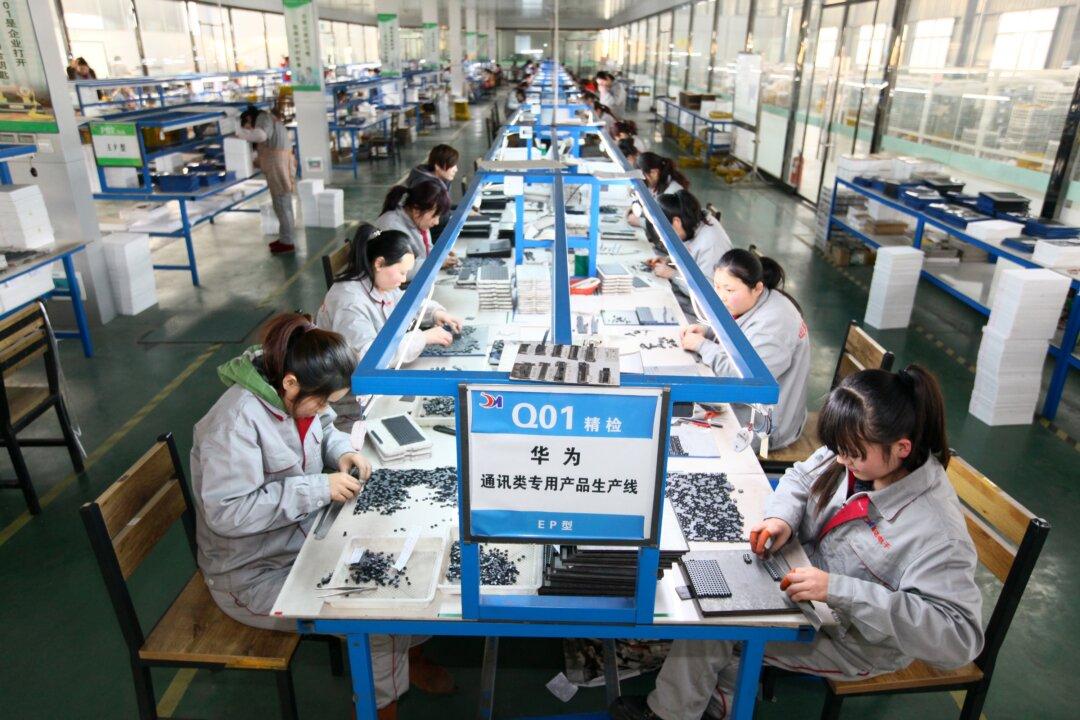A congressional commission report found that the top manufacturers supplying IT equipment to the U.S. government have sourced an average of 51 percent of the parts from China since 2012. The lack of a proactive strategy for managing U.S. supply chains, combined with the Chinese communist regime’s malicious intent, constitutes a great risk to U.S. national security, economic competitiveness, and the privacy of American citizens, the report says.
The report was released on April 19 by U.S.-China Economic and Security Review Commission, a congressionally mandated organization dedicated to investigating national security and trade issues between the United States and China.




